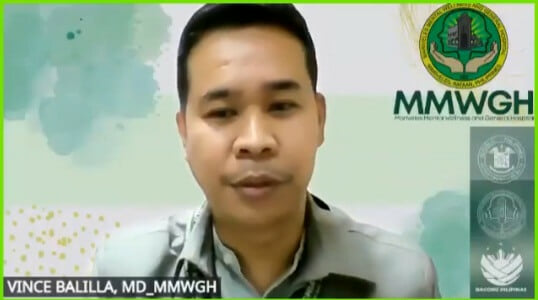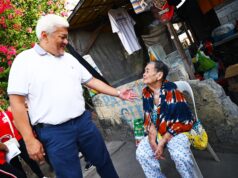
CABANATUAN CITY (PIA) — The Department of Health (DOH) Central Luzon Center for Health Development (CLCHD) urged communities to break stigma, debunk myths, and raise awareness to change the narrative on suicide prevention.
Mariveles Mental Wellness and General Hospital Medical Officer Vincent Balilla explained that suicide is the act of intentionally causing one’s own death.
“Suicide is an intentional death caused by self-harm with the intent to die,” he said.
A suicide attempt is when a person tries to end life but survives, which must always be seen as a call for help.
Balilla clarified that stigma is the fear, shame, and wrong beliefs surrounding suicide, which prevent people from speaking up and seeking help.
“Part of the stigma are the myths and misconceptions that prevent many from speaking up,as they think that talking about suicide might encourage it, or that they will be seen as lacking faith or weak willed,” he pointed out.
Balilla stressed the importance of correcting myths such as the belief that talking about suicide encourages it, when in fact open conversations give people the chance to find other solutions and feel supported.
“The truth is, open conversations give a person a chance to find other solutions and feel that there is hope,” he said.
He debunked the misconception that people who talk about suicide are only seeking attention, noting that every mention of suicide must be treated as a cry for help.
He emphasized that not only people with mental illness can have suicidal thoughts, and that while many who die by suicide may have mental health or substance issues, not all cases are linked to illness.
He also refuted the belief that people determined to die by suicide cannot be stopped, saying that most individuals are conflicted and the right support at the right time can save lives.
Balilla reminded the public to be alert to warning signs such as sudden mood changes, withdrawal from friends, substance abuse, feelings of hopelessness, or statements like “wala na akong silbi” or “sana mamatay na lang ako”.
He said that proper response includes listening with empathy, remaining calm, taking suicidal words seriously, and linking the person to professional support.
“Yes, practice active and empathetic listening, but we also need to stay calm, and most importantly, take seriously what they say, even if it’s said jokingly. Any statement regarding suicide, even in jest, should always be taken seriously,” he emphasized.
“Lastly, the most important thing to do is to help them find professional help,” he added.
He warned against promising secrecy, arguing or shaming, and leaving someone alone if they are in danger.
“We should not challenge or argue with them, asking why they think that way or saying they lack something, especially if we know they have a plan to commit suicide. Never leave them alone because again, suicide is a psychiatric emergency,” Balilla stressed.
Balilla also highlighted the role of media in changing the narrative by avoiding sensational reporting that may trigger copycat suicides and instead promoting stories of hope, recovery, and access to help.
Those in crisis may call the National Center for Mental Health (NCMH) 24/7 Crisis Hotline at 1553 (Luzon-wide, toll-free).
For assistance in Bataan, the Mariveles Mental Wellness and General Hospital may be contacted through its Emergency Department at 0961-431-1824 or by scheduling an appointment at its Outpatient Unit via https://mmwgh.gov.ph/appointment.
Furthermore, the DOH CLCHD calls on everyone to take part in suicide prevention by listening, understanding, and acting. Joining them in changing the narrative from despair to hope, healing, and unity.(CLJD/MCAL,PIA Region 3- Nueva Ecija GIP)




